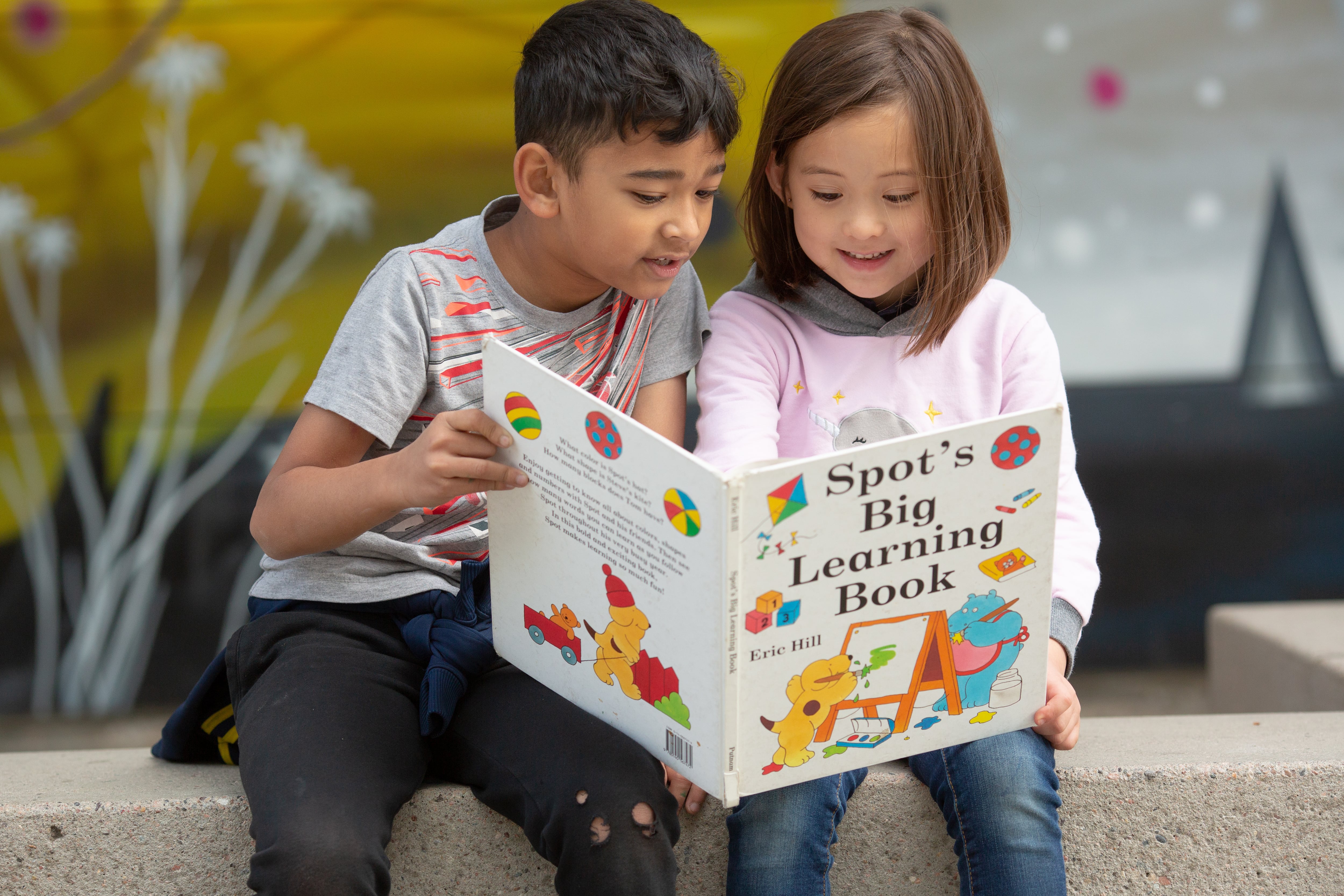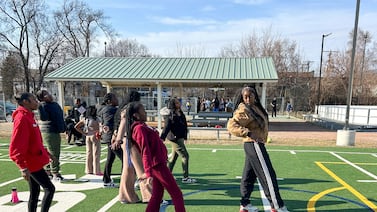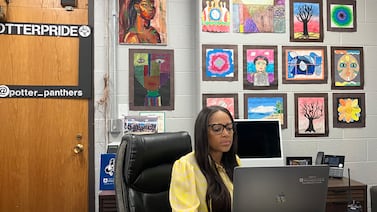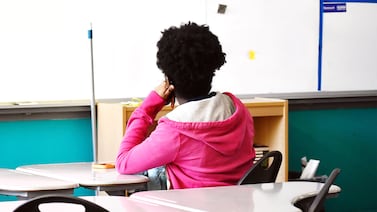Fewer young Denver students were reading at grade level this fall than in the previous two years — a concerning trend district officials attribute to unfinished learning during the pandemic.
The district is rolling out several strategies to reverse the trend, including tutoring students who need extra help, expanding summer literacy programming, and adopting a new state-approved curriculum based on the “science of reading,” officials said.
Some schools are already piloting the curriculum, called Core Knowledge Language Arts, and teachers said it’s making a big difference.
Megan Bobroske, a second grade teacher at Bradley International School, said one of her students who used to do anything to avoid reading — he’d sharpen pencils or pick up supplies on the floor — is now so obsessed with books that he’s reading at recess.
“I’ve had to remind him, ‘You can’t walk and read because you will walk into a wall,’” Bobroske said. “That kind of joy of reading is ignited.”
Students nationwide have gaps in their learning because the pandemic interrupted schooling. But those gaps are particularly worrisome for students whose schooling was interrupted in the early elementary years, when many children learn to read.
This fall, just 46% of Denver students in kindergarten through third grade were reading at grade level or above, according to data presented to the school board Monday. The data captures scores from a literacy test called iStation, which most district-run schools use.
That 46% is down from 56% in fall 2020 and 53% in fall 2019, before the pandemic. The drops were even more pronounced for Black students, Hispanic students, students whose first language is not English, and students with disabilities. For example, only about a third of Black and Hispanic students in the early grades were reading at grade level or above this fall.
First grade students — whose preschool year was interrupted by COVID-19 and who started kindergarten during the pandemic — saw the largest impact. Before the pandemic, in fall 2019, 49% of first graders were reading at grade level or above. This fall, just 37% were.
The data reveals another troubling trend too. For at least the past five years, the percentage of kindergarten-through-third-grade students who scored “significantly below grade level” on the fall reading test hovered around 22%. This fall, it jumped to 31%.
“This is something I believe we should be pretty concerned about,” said Jessica Martin, the district’s executive director of assessment, reporting, and data. She said that while it’s hard to teach a student to read, “It’s even harder to catch up a student who is several years behind. And in this particular year, that percentage is now about a third of our students.”
This fall, Denver teachers in kindergarten, first, and second grade started focusing more on phonics — or the sounds letters make — using a supplemental curriculum called Heggerty, district officials said.
The daily 15-minute lessons are helping, teachers said. Hannah Maldonado, who teaches first grade at Barnum Elementary, said none of her students scored in the lowest band for phonemic awareness this month, which has never happened so early in the school year.
“They’re just able to manipulate words — beginning sounds, ending sounds, medial sounds — all on their own in ways that I haven’t really ever seen before,” Maldonado said.
Starting in January, the district plans to offer grade-level tutoring to students who need extra help. The tutoring will be done by an outside organization the district is in the process of selecting, officials said. The organization won’t get its full pay unless the tutored students make an average of a year’s worth of growth in reading.
The district is also aiming to pilot a screening tool for dyslexia at six schools this winter, officials said. Dyslexia is a learning disability that impairs reading. The screener has been a long time coming.
In addition, the district is expanding its “summer academy,” previously a three-week literacy camp for students reading below grade level. This year, officials said the district is planning a six-week camp focused on science and math too that will be open to all rising first- through fifth-graders.
And next fall, the district plans to roll out its new reading curriculum districtwide. Teachers started getting training on Core Knowledge Language Arts last spring, and all Denver teachers in kindergarten through third grade will be trained by June, officials said.
The curriculum switch complies with a 2019 state law requiring schools to use reading curriculum backed by science. The “science of reading” refers to a large body of research on how children learn to read. One key finding is that teaching phonics in a direct and systematic way helps build skilled readers. Many Denver schools currently use a state-rejected curriculum called Benchmark Advance and its Spanish-language counterpart, Benchmark Adelante.
A federal court order requires Denver Public Schools to provide equivalent reading curriculum in Spanish to serve students who speak it as their first language. Next year, the district will use Caminos, which is the Spanish-language counterpart to Core Knowledge Language Arts.
Teachers whose schools are piloting the new curriculum praised them to the school board, though some said not all of the lessons and texts are culturally responsive.
Molly Veliz, who teaches at Marie L. Greenwood, which serves students in preschool through eighth grade, said the previous reading curriculum encouraged students to guess at words they didn’t know. The science of reading has taken the guesswork out of it, she said.
“It’s kind of been an experience that’s a little bit mind blowing to recognize that what we were doing was incorrect and harming children,” Veliz said. “Kids are so much more empowered by being able to recognize that they can decode any word they come across.”







